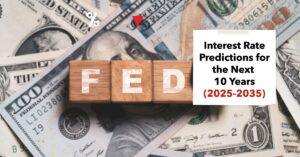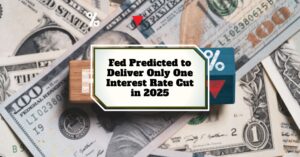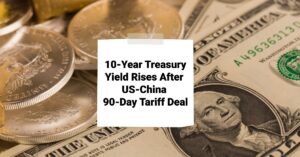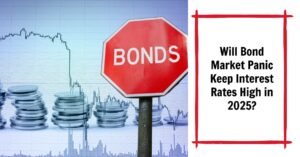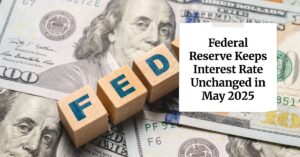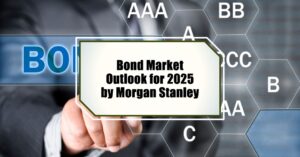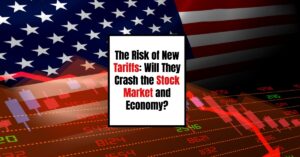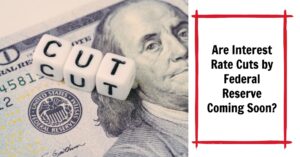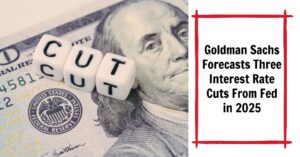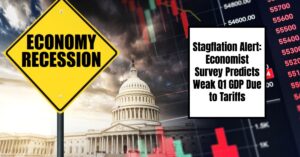Ever wonder where your money—and the cost of borrowing it—is headed? It's a big question, and one that I think about a lot, especially when planning for the future. When we talk about interest rate predictions next 10 years, we're trying to get a clearer picture of what things might look like from roughly 2025 through 2035.
Based on what the experts are saying and what the current economic tea leaves suggest, it looks like we can expect interest rates, including the key Federal Funds Rate, to gradually come down from their current levels over the next couple of years, and then likely settle into a more stable, moderate range longer term, perhaps around 2.5% to 3.5%. Of course, no one has a perfect crystal ball, but we can make some pretty educated guesses.
As I sit here in May 2025, it feels like we've been on a bit of an economic rollercoaster, especially with inflation and the steps taken to cool it down. Interest rates are a huge part of that story. They affect everything from the monthly payment on your mortgage to the returns you might see on your savings account. So, let's dive in and explore what the road ahead might look like.
Interest Rate Projections for the Next 10 Years (2025-2035)
Where We Stand Right Now (May 2025)
To understand where we're going, it's always good to know where we are. Right now, the Federal Funds Rate, which is the main interest rate set by our nation's central bank, the Federal Reserve (often just called “the Fed”), is sitting in a target range of 4.25% to 4.50%. The actual rate that banks lend to each other overnight, the effective federal funds rate, is hovering around 4.33%.
Now, you might remember rates being higher not too long ago – they peaked at 5.33% back in August 2023. The Fed has made some cuts since then, holding steady since December 2024. Why? Well, the Fed has two main jobs: keeping employment high and prices stable (which means keeping inflation in check). These rate levels are their way of balancing those goals based on how the economy's been performing, especially with inflation and the job market.
Other rates that hit closer to home for many of us are also important:
- The average 30-year fixed mortgage rate is currently around 6.83%. Ouch, right? That definitely impacts what people can afford when buying a home.
- The 10-year Treasury yield, which is what the government pays to borrow money for 10 years and influences many other rates, was about 4.33% as of March 2025.
So, that's our starting point. Rates are elevated compared to much of the last decade, but they're off their recent highs.
Gazing into the Near Future: Short-Term Projections (2025–2027)
When I look at what the folks at the Federal Reserve themselves are predicting, along with other big players like the Congressional Budget Office (CBO) and major banks, a pattern starts to emerge for the next couple of years.
The Fed's own team, the Federal Open Market Committee (FOMC), gives us regular updates. Their March 2025 projections for the Federal Funds Rate look something like this:
| Year | Median Federal Funds Rate Projection |
|---|---|
| 2025 | 3.9% |
| 2026 | 3.4% |
| 2027 | 3.1% |
Source: Federal Reserve, March 2025 Summary of Economic Projections
What does this table tell me? It suggests a gradual decline. The Fed isn't expecting to slash rates dramatically overnight, but rather to ease them down bit by bit. This thinking is echoed by others:
- The CBO largely agrees, seeing the rate around 3.7% by late 2025 and 3.4% by late 2026.
- Goldman Sachs, a big investment bank, thinks we might see three small cuts (0.25% each) in 2025, bringing the rate to between 3.5% and 3.75% by the end of this year.
- Morningstar, another respected financial research firm, is a bit more optimistic about rates coming down faster, predicting 3.50%–3.75% by the end of 2025, then potentially dipping to 2.25%–2.50% by mid-2027.
So, why this gentle slide downwards? The general idea is that inflation, which has been a big headache, is expected to continue cooling off and get closer to the Fed's target of 2%. At the same time, economic growth is expected to be steady, not too hot and not too cold. In that kind of environment, the Fed can afford to lower rates a bit to make sure the economy keeps chugging along without reigniting inflation. For me, this feels like a cautious optimism – hoping for a “soft landing” where inflation is tamed without causing a major recession.
The Long View: What Might Happen from 2028 to 2035?
Predicting things five, seven, or even ten years out is where it gets really tricky. Think about all the unexpected things that can happen in a decade! However, economists still try to map out a general direction.
The Fed has what they call a “longer-run” projection for the Federal Funds Rate. This is essentially where they think the rate should be when the economy is in perfect balance – not booming, not busting, and inflation is at its 2% target. Their current estimate for this neutral rate is 3.0%.
- The CBO thinks rates might settle a bit higher, around 3.4%, after 2026.
- Morningstar, with its more aggressive short-term cuts, sees rates potentially staying lower, in that 2.25%–2.50% range even into the longer term if their mid-2027 forecast holds.
So, if I had to hazard a guess for 2035, I'd say the Federal Funds Rate is likely to be somewhere between 2.5% and 3.5%. This range reflects the different views on where that “neutral” point might actually lie. If inflation behaves and growth is moderate, we could hover around that 3.0% mark. But, and this is a big “but,” major economic curveballs – think new trade wars, big changes in government spending, or even unexpected technological leaps – could easily push rates higher or lower. For instance, Goldman Sachs has pointed out that things like new tariffs could increase the risk of a recession, which would probably lead the Fed to cut rates more to support the economy.
It's Not Just About the Fed: Other Rates We Watch
The Federal Funds Rate is like the sun in the solar system of interest rates – it has a gravitational pull on many others.
10-Year Treasury Yield
This is a big one. It influences mortgage rates and all sorts of other borrowing costs. As of March 2025, it was at 4.33%.
- Analysts polled by Bankrate see it potentially falling to around 3.55% by December 2025.
- The CBO expects longer-term rates like this to ease through 2026 and then find a more stable level. Historically, the 10-year Treasury yield tends to be about 1% to 2% higher than the Federal Funds Rate. So, if the Fed's rate eventually settles around 3.0%, we might see the 10-year yield in the 4.0% to 5.0% range in the long run. From my perspective, this makes sense because investors usually demand a bit extra for tying up their money for a longer period and taking on more risk compared to an overnight bank loan.
30-Year Fixed Mortgage Rates
This is the one that many families care most about. At 6.83% in May 2025, it's a significant hurdle for homebuyers.
- Good news might be on the horizon, though. Fannie Mae (a major player in the mortgage market) forecasts mortgage rates could dip to 6.3% by the end of 2025 and maybe even 6.2% by 2026. This would be a welcome relief, making homes a bit more affordable. I believe even small drops here can make a big difference in monthly payments and overall housing market activity.
The Big Movers: Factors That Will Shape Interest Rates
So, what makes these rates go up or down? It's not random. Several powerful forces are at play.
- Inflation Trends: This is numero uno for the Fed. Their target is 2% inflation (measured by something called the PCE index). The CBO thinks we'll see inflation around 2.2% in 2025, 2.1% in 2026, and then settle at 2.0% from 2027 all the way to 2035. If inflation stays stubbornly high, the Fed will likely keep rates higher for longer. If we surprisingly see deflation (prices falling), they'd cut rates fast. My take? The path to 2% might be bumpier than the forecasts suggest. Global supply chains are still reconfiguring, and energy prices can be wildcards.
- Economic Growth (GDP): How fast is the economy growing? The CBO is forecasting real GDP (meaning, adjusted for inflation) to grow by 1.9% in 2025 and 1.8% in 2026, then stabilize at 1.8% per year through 2035. If growth is much stronger than expected, the Fed might raise rates to prevent overheating. If we dip into a recession, they'll cut rates to try and stimulate things. I personally feel that 1.8% growth is modest and suggests an economy that isn't putting too much upward pressure on rates.
- Government Finances (Fiscal Policy): This is a biggie that sometimes gets overlooked. The CBO projects that federal deficits (the amount the government overspends each year) and the national debt are going to keep rising. When the government borrows a lot of money, it can push up interest rates for everyone. It’s like more people trying to drink from the same well – the price (interest rate) goes up. The CBO even notes that the cost of paying interest on our national debt is projected to exceed defense spending by 2025! In my experience, persistently large deficits tend to put a floor under how low rates can go.
- Global Economic Weather: We don't live in a bubble. What happens in other countries matters. Trade policies, like the tariffs Goldman Sachs mentioned, can disrupt supply chains, affect prices, and slow down growth. A major economic slowdown in Europe or Asia could also drag our economy down, prompting lower rates here. Conversely, strong global growth could boost our exports and potentially lead to higher rates. I always keep an eye on international developments because they can have surprisingly direct impacts.
- People Trends (Demographics and Structural Stuff): Things like an aging population and slower growth in the number of people working can mean the economy's overall growth potential is lower. If the economy can't grow as fast as it used to, it might not need (or be able to handle) super high interest rates. This is a slow-moving factor, but over a decade, it can really shape the underlying “natural” rate of interest.
- My Wildcard – Technology and Geopolitics: I'd add two more factors here that are hard to quantify but hugely important.
- Technological Advancements: Think about AI, automation, and green energy. If these boost productivity significantly, it could lead to stronger non-inflationary growth, potentially allowing rates to be structured differently. It's a bit of an unknown, but a powerful potential force.
- Geopolitical Stability: Unexpected conflicts or major shifts in global power dynamics can send investors flocking to “safe” assets (like U.S. Treasuries, pushing their yields down) or cause inflationary supply shocks (pushing rates up). This is the true “black swan” territory.
What This All Means for You, Me, and Everyone Else
Okay, so rates are likely to go down a bit, then level off. What does that actually mean for our daily lives and financial decisions?
1. For Consumers:
- Borrowing: If rates fall as projected, it could become cheaper to get a mortgage, take out a car loan, or carry a balance on a credit card. That projected dip in mortgage rates to around 6.2%–6.3% could make a real difference for homebuyers.
- Saving: The flip side is that the interest you earn on savings accounts or CDs might also come down. It's always a trade-off.
- My advice for consumers: If you have variable-rate debt, you might see some relief. If you're looking to buy a home, patience might pay off with slightly lower rates. For savers, locking in longer-term CD rates now, while they are still relatively high, might be something to consider.
2. For Investors:
- Bonds: When interest rates fall, existing bonds (which pay a fixed rate) become more valuable. So, a declining rate environment can be good for bond prices. However, the income you get from new bonds will be lower.
- Stocks: Lower interest rates can be good for the stock market. It makes borrowing cheaper for companies to invest and expand, and it can make stocks look more attractive compared to bonds. However, those tariff risks Goldman Sachs mentioned could throw a wrench in the works for certain sectors.
My insight for investors: Diversification will be key. A mix of assets can help navigate a period where rates are falling but economic uncertainties remain. Consider what a “neutral” rate environment means for long-term portfolio allocation.
3. For Businesses:
- Investment: Cheaper borrowing costs could encourage businesses to invest in new equipment, technology, or expansion.
- Challenges: Businesses will still need to deal with whatever inflation pressures remain and navigate any trade disruptions or economic slowdowns.
- My perspective for businesses: Agility is crucial. Being able to adapt to changing economic conditions and borrowing costs will separate the winners from the losers. Scenario planning for different rate environments would be wise.
5. For Policymakers (The Fed and Government):
- The Fed will continue its delicate balancing act: keeping inflation low while supporting employment.
- Government officials will have to grapple with the rising cost of servicing the national debt. As the CBO pointed out, interest costs are becoming a massive budget item.
- My commentary for policymakers: The easy decisions are behind us. Managing debt sustainability while fostering long-term growth in a potentially lower-rate, modest-growth world will require some very smart (and likely tough) choices.
A Final Thought:
So, the general consensus for interest rate projections next 10 years points towards a gradual easing from where we are in mid-2025, followed by a period of stabilization, likely in that 2.5% to 3.5% range for the Federal Funds Rate. This should ripple through to mortgage rates and other borrowing costs, offering some relief.
However, if there's one thing I've learned from watching markets and economies, it's that projections are just that – projections. They are educated guesses based on current information. The real world has a funny way of throwing curveballs. The factors I mentioned – inflation, growth, government policy, global events, and even technology – are all dynamic and can change the script.
My best advice? Use these projections as a guide, not a guarantee. Stay informed, be flexible in your financial planning, and prepare for a range of outcomes. The path over the next decade won't be a perfectly straight line, but by understanding the forces at play, we can all make better decisions along the way.
“Position Your Investments for the Next Decade”
With interest rates expected to fluctuate over the next 10 years, smart investors are locking in real estate opportunities now to build long-term passive income and hedge against rising costs.
Norada offers turnkey, fully managed properties in high-demand markets—perfect for building wealth regardless of the rate environment.
HOT NEW LISTINGS JUST ADDED!
Speak to a Norada investment advisor today (No Obligation):
(800) 611-3060
Recommended Read:
- Will the Bond Market Panic Keep Interest Rates High in 2025?
- Interest Rate Predictions for 2025 by JP Morgan Strategists
- Interest Rate Predictions for Next 2 Years: Expert Forecast
- Fed Holds Interest Rates But Lowers Economic Forecast for 2025
- Fed Indicates No Rush to Cut Interest Rates as Policy Shifts Loom in 2025
- Fed's Powell Hints of Slow Interest Rate Cuts Amid Stubborn Inflation
- Fed Funds Rate Forecast 2025-2026: What to Expect?
- Interest Rate Predictions for 2025 and 2026 by NAR Chief
- Market Reactions: How Investors Should Prepare for Interest Rate Cut
- Interest Rate Predictions for the Next 3 Years
- Impact of Interest Rate Cut on Mortgages, Car Loans, and Your Wallet
- Interest Rate Predictions for Next 10 Years: Long-Term Outlook
- When is the Next Fed Meeting on Interest Rates?
- Interest Rate Cuts: Citi vs. JP Morgan – Who is Right on Predictions?
- More Predictions Point Towards Higher for Longer Interest Rates
